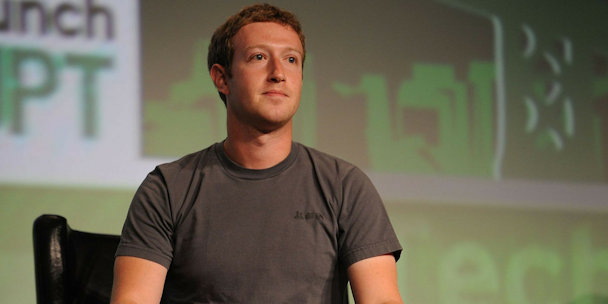Mark Zuckerberg on Cambridge Analytica scandal: 'If we can’t protect you, we don’t deserve to serve you'
Facebook founder and chief executive Mark Zuckerberg released a statement in the wake of the ongoing Cambridge Analytica scandal.

Zuckerberg outlined the developing Cambridge Analytica events, and outlined steps to reverse damage in Facebook post
"We have a responsibility to protect your data, and if we can't then we don't deserve to serve you. I've been working to understand exactly what happened and how to make sure this doesn't happen again," said Zuckerberg.
He then revealed Facebook's version of events between the social network and the firm hired by the Trump administration for his presidential election. In 2013, six years after Facebook launched its platform for in-site app developers, Aleksandr Kogan created a personality quiz that received data from 300,000 users, along with that of each user's respective networks and friends.
"Given the way our platform worked at the time," Zuckerberg said, "this meant Kogan was able to access tens of millions of their friends' data." Facebook released an update in 2014 to keep users from malicious apps so that for an app like Kogan's to pull the same data, friends of users would have to release that info of their own volition, and not in a second-hand manner.
The Guardian revealed that, in 2015, Kogan shared this data with Cambridge Analytica. As a result, the site banned Kogan and requested all "improperly acquired" data be deleted. "They provided these certifications," Zuckerberg added. Through the stories reported by The Guardian, as well as the New York Times and Channel 4, Cambridge reportedly may not have deleted this data as it previously certified.
The data in question has been a topic of focus in an investigation into meddling by Russia in the 2016 US presidential election.
Zuckerberg, who earlier this year, promised to fix issues within the network he created over a decade ago his personal challenge for the year, said the company has already taken important steps to prevent more bad actors from accessing people's information. Additional steps mentioned include: adding transparency to the apps users download with a new tool at the top of their News Feed; investigating other bad actors pre-2014 update; and restricting access to personal data for apps not used after three months.
"I started Facebook, and at the end of the day I'm responsible for what happens on our platform." Zuckerberg ended his statement saying: "I'm serious about doing what it takes to protect our community. While this specific issue involving Cambridge Analytica should no longer happen with new apps today, that doesn't change what happened in the past. We will learn from this experience to secure our platform further and make our community safer for everyone going forward."
Zuckerberg's statement was released a day after The Verge reported that Whatsapp co-founder Brian Acton tweeted that his followers should "#deleteFacebook."
It is time. #deletefacebook
— Brian Acton (@brianacton) March 20, 2018
Other former Facebook employees, some of whom were part of the early days of the platform's development have shared misgivings as well. Chamath Palihapitiya, who led user growth, for example, told a Stanford Graduate School of Business audience last fall that social media platforms “have created tools that are ripping apart the social fabric of how society works.”
A statement, written before Zuckerberg's announcement, by influential analyst Brian Wieser, showed concern for the social platform's "signs of systemic mismanagement," adding that it is "a new concern we had not contemplated until recently. Recall that our negative view on Facebook’s stock has been primarily due to concerns about limits to growth for digital advertising in general and for Facebook in particular, which means more rapid deceleration than consensus expectations in our model’s latter years. Related, we have been concerned about rising costs to support revenue growth as well as higher costs required to manage a variety of issues, such as with content moderation or higher costs to vet partners and advertisers."
Now that the Cambridge scandal has taken shape, Wieser noted a different class of problem, continuing: "To organize these concerns, in this note we have separated issues which are due to bad luck or bad choices versus those which should have been prevented, cataloging groupings of some of the operational problems that have occurred since the end of 2015."
He agreed that Facebook has addressed some of its problems, and stated that the platform "presumably will address the remainder or eventually be compelled to do so. However," he continued, "investors now have to consider whether or not the company will conclude that it has grown in a manner that has proven to be untenable or whether it needs to significantly improve how it is managed. The former scenario would depress the size of the company, but the latter scenario introduces the possibility (and related risks) of personnel changes at some point in the not-too-distant future. Both of these scenarios are incremental risks to those previously contemplated in our analyses."

